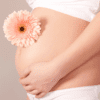Chinese Medicine and Menopause
Hot flashes, joint pain, moody roller coasters – the joy of “The Change.” In addition to the end of childbearing years and hormonal swings, menopause causes many changes in women’s nervous systems to take place. Even the brain is being rewired. According to the wisdom of Traditional Chinese Medicine (TCM), this time of life is viewed as the Second Spring.
Going through menopause is a process that is often dreaded by many women because it involves a change in the body that can be uncomfortable, or even painful. In TCM, menopause is not considered a disease or illness, but a normal physiological process that occurs, for most women, in their late forties or early 50s. Some women, however, will experience hormonal changes, fluctuations, and symptoms as early as their 30s. Primary ovarian insufficiency (POI) is when a woman’s ovaries stop working normally before age 40. POI is often confused with premature menopause, but the conditions are quite different. With POI, a woman can still have occasional periods and conceive. In premature menopause, a woman no longer has her period and thus can’t become pregnant. When a woman experiences menopause earlier than expected, it can lead to increased stress, anxiety, and frustration.
Menopause is unique for each woman and thus a person’s symptoms can vary. Nonetheless, menopause can be a difficult time for a woman to face alone. Finding a Chinese and functional medicine practitioner to work with during this important time can not only ease symptoms but also offer support in a healing atmosphere. While women undergo much change over the years, this can easily lead to an imbalance in the body. When the body is out of balance, according to the yin-yang theory of Traditional Chinese Medicine, the reproductive and endocrine systems are affected.
The Transition
The time around menopause is called perimenopause. During this time, ovarian function and estrogen levels decline. Periods may become irregular and the cycle of bleeding may be shortened. Some women experience hot flashes, flushing, and night sweats as they transition from perimenopause to menopause. Often, women experience mood changes, sleep disruptions, decreased sex drive, and even cognitive changes such as brain fog. Yet others suffer from fatigue, weight gain, hair loss, or vaginal dryness.
Approximately 80% of women will experience symptoms for a short period while other women may experience symptoms as early as 8 to 10 years before menopause. Naturally, not every woman will experience the same symptoms. Some will experience no symptoms, while others struggle with varying symptoms. These changes can be noticed not only on a physical level but can also come with some psychological and emotional changes as a result of declining estrogen levels.
Chinese Medicine and Menopause
Traditional Chinese Medicine can offer relief to women who are experiencing symptoms associated with perimenopause and menopause. TCM provides natural medicine options for those who prefer not to use hormone replacement therapy or pharmaceutical medicines during this time of transition.
In TCM, this time is related to the decline of Qi, Blood, and Jing. Our goal is to focus on the root cause and balance the Yin and Yang of the body primarily through the Kidney to help alleviate any troublesome symptoms. The Kidney is the root of the body’s reproductive system and our source Qi. Qi represents not only the total energy of the body but also the energy levels of each organ and system. Disharmony in the Kidney can affect other organs including the Liver and the Heart.
According to TCM, the Liver stores blood and is responsible for menstruation. The Kidneys are the reserve for the total Qi of the body, including the Essence Qi, known as Jing. As we age, this Essence Qi declines, leading to changes in the body. While we can bolster our overall Qi by eating well and living a balanced lifestyle, the Essential Qi that we are born with cannot be replenished. This is why we experience aging. Yet, TCM practices can assist in smoothing the Liver Qi and supporting the Kidneys during this time. Using acupuncture, Chinese herbs, and other ancient modalities can ease the transition to a new phase of life.
Acupuncture for Hot Flashes
Hot flashes are one of the most common symptoms to occur in perimenopausal and menopausal women. According to TCM, hot flashes happen when the yin energy of the body declines, leading to an excess impact of yang energy in the body. This yang qi is not anchored by the heavier yin, which causes it to rise in the body. This results in flushing and heat sensations in the face, neck, and head. Some people experience this decline in yin more frequently in the evening or nighttime, resulting in night sweats.
Acupuncture works to cool the body through dilation of the blood vessels. The practice also stimulates endorphins which can relieve pain. Evidence of the effectiveness of acupuncture for menopause is more than anecdotal. Studies have shown that receiving acupuncture treatments can reduce the frequency of hot flashes.
One study demonstrated that women experienced relief after as few as three treatments. For women who had eight weeks of acupuncture, the treatment offered relief for up to 6 months. In addition to these findings, acupuncture is also well known to treat headaches and pain, reducing symptoms of anxiety, alleviating depression, and benefiting sleep. Another study found that acupuncture reduced symptoms of hot flashes by 47%, and some people had symptoms reduced by nearly double.
Herbal Medicine and a Healthy Diet
Additionally, herbal medicine is an important treatment modality in TCM. Chinese herbs have been used successfully for thousands of years to address menopausal symptoms. Herbal formulas can support the changes in hormone levels and help restore balance. Several in vivo and in vitro studies have shown a marked effect on the endocrine system to provide hot flash relief, alleviate vasomotor instability, loss of bone mass, and other conditions associated with menopause. Though Chinese herbs are tailored to a woman’s specific symptoms and constitution, some commonly used formulas are Three Immortals (modified Er Xian Tang), Liu Wei Di Huang Wan, and Jia Wei Xiao Yao Wan. We recommend that you use a board-certified herbalist that is trained in Chinese herbs. After a thorough review of your medical history and symptoms, Dr. Iona will prescribe a customized herbal formula to address your symptoms.
TCM practitioners may also suggest certain foods to help bring the body back into balance. For a woman experiencing hot flashes, cooling and nourishing foods such as yams, mung beans, rice, lotus, or seeds can nourish yin. Chrysanthemum and chamomile tea can also nourish the yin. For a woman experiencing cold symptoms, drinking warm water and tea and eating warm foods and nuts can help support warmth in the body. Honey, dates, and goji berries are nourishing for the blood and can be beneficial at this time.
Though menopausal signs and symptoms are disturbing, they are self-limiting. Such signs and symptoms may be prominent for a few years, but then gradually lessen in severity and eventually dissipate.
Chinese Medicine can help women with symptoms of perimenopause and menopause to manage the changes they are experiencing and ease their emotional, mental, and physical symptoms. All women are different, so working with a practitioner is the best way to alleviate symptoms and be supported during this time in your life. We also suggest seeing your practitioner as soon as your symptoms start. Here, at Healing Points, we start with a comprehensive intake and exam to help determine the root cause of your symptoms and then customize your treatment plan.
Schedule your complimentary 15-minute consultation to get started and find relief.










